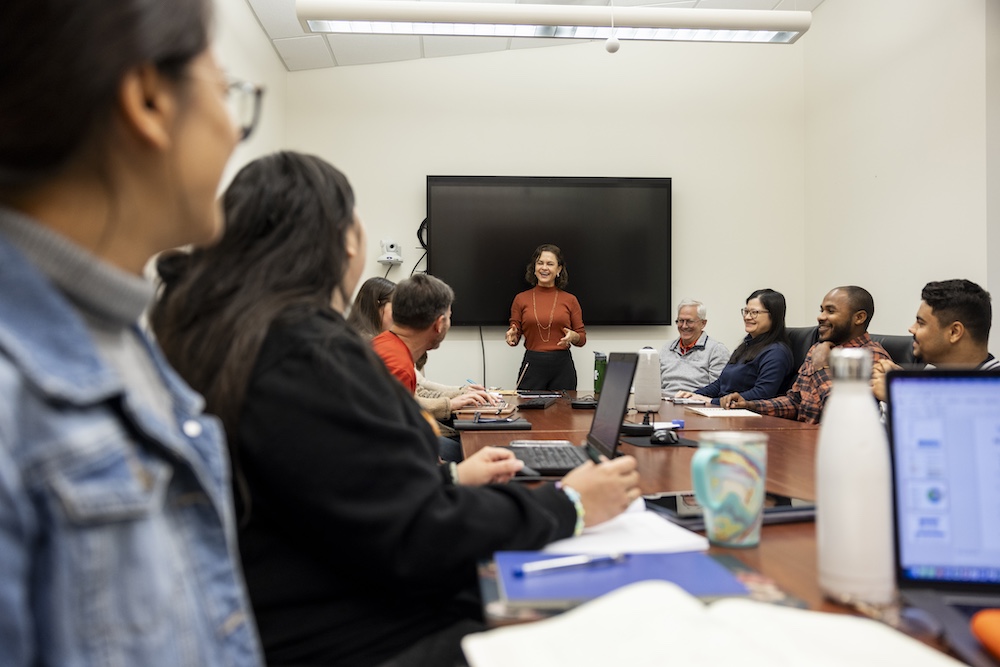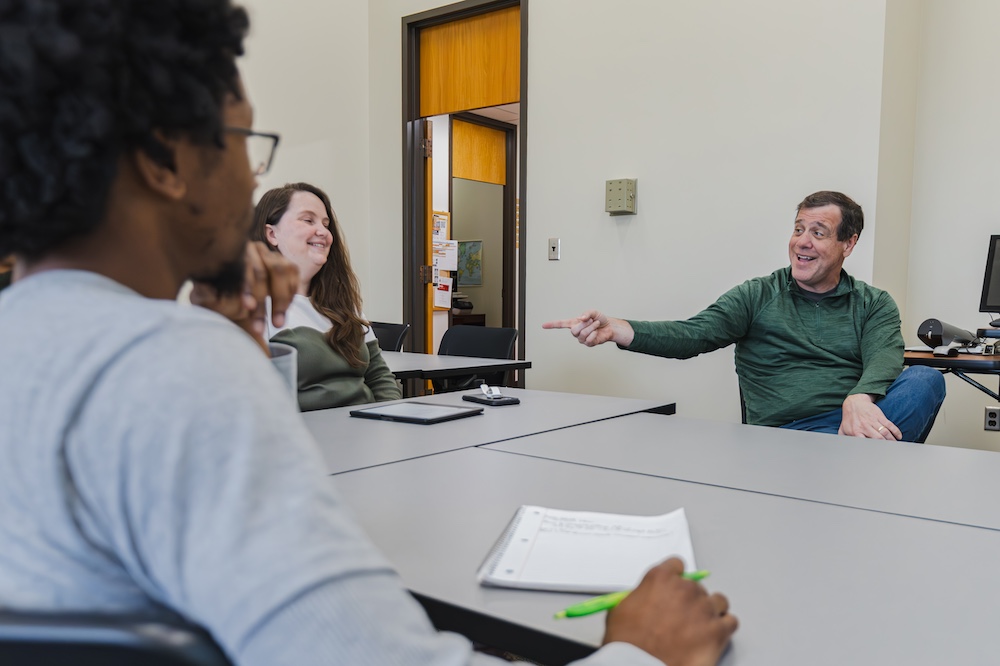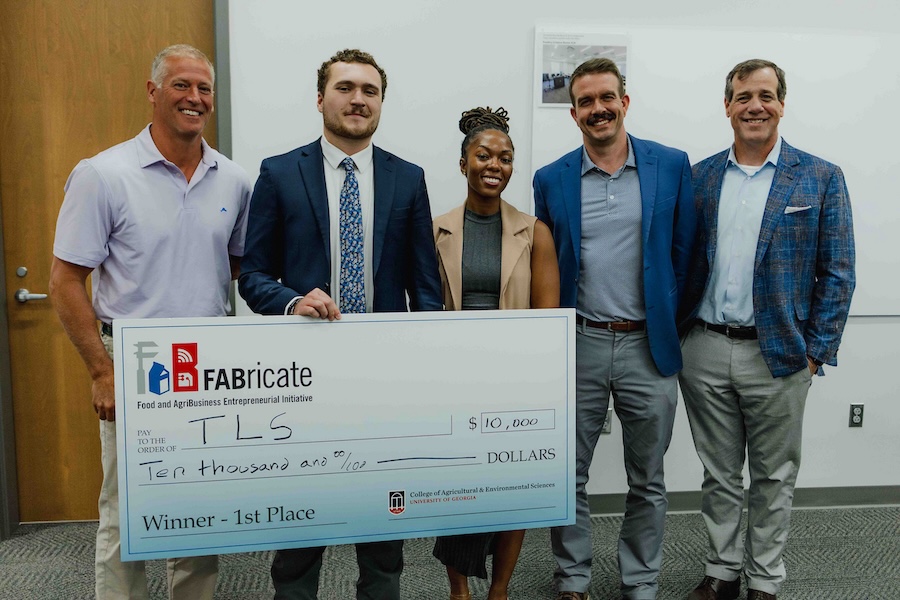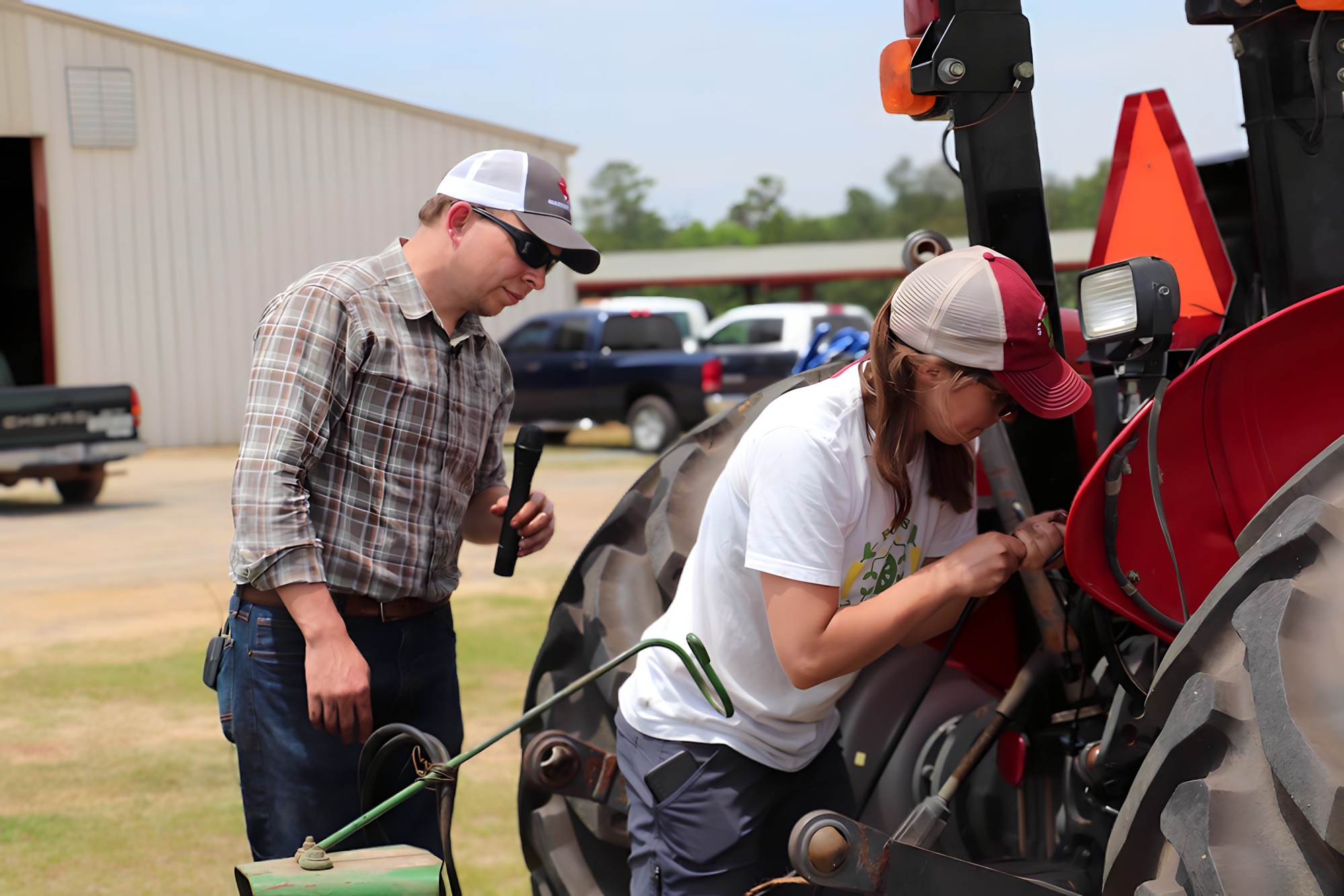
The University of Georgia College of Agricultural and Environmental Sciences (CAES) has launched the specialized Career Impact Training Program (CIT) as part of its ongoing mission to empower students to excel in professional environments.
Led by Chris Rhodes, CAES director of industry partnerships, CIT is a comprehensive training program that helps graduates develop the essential qualities they need to be successful in the private sector.
“I always say that each graduating class is the best-educated group of people in the history of the world because no cohort has ever learned as much, or is as up-to-date, as this year’s graduates,” said Rhodes. “CIT is set up to ensure that these best-educated graduates have the skills required to make full use of that education.
Throughout the next two years, CAES students in the inaugural CIT cohort will begin to understand real-world business cycles, network with global industry leaders and consider the best pathways for their careers, among other valuable training exercises.
“The program is about developing an understanding of how different parts of the private sector work together, how to best position themselves to find fulfilling jobs with maximum impact, and how to be as effective as possible once they begin their careers and as they move up over different phases of their lives,” Rhodes said.
Targeted mentoring
One major component of the innovative new program is a one-on-one training model that prioritizes a student’s individual goals and provides them with specific tools and frameworks for development, no matter what their aspirations are.
“In CAES, we believe in creating opportunities for students to experience hands-on learning that propels them forward as society’s next leaders,” said Nick T. Place, dean and director of the college. “Our unique CIT program is going to do just that — cultivate skills, encourage growth and produce career-ready graduates with the knowledge they need to find success.
“We’re proud to offer this kind of intensive development for CAES students because we’re already producing the most well-educated students in our college’s history, so now we want to intentionally prepare those students for what awaits them after their tassels have been turned at graduation. CAES is invested in the future of agriculture and the environment, and the future lies with our students.”
Ready, set, success

Already among the national leaders in agricultural and environmental sciences education, and key contributors to UGA programs such as study abroad, CAES students are thriving inside the classroom and in experiential learning opportunities. The next step is challenging them even further by introducing them to more private-sector pathways and new perspectives which help them advance their careers more confidently as value-added new hires.
Combined, each of these beneficial components works together to create a strong culture within CAES and sets its students up for long-term achievements.
"At CAES, hands-on, practical application is an integrative component of a student's degree program,” said Caroline Hinton, director of experiential learning at the college. “Our students are already gaining scientific knowledge from world-class leaders in the classroom and through various experiential learning opportunities. The next step for our college is translating this student knowledge into industry impact.
“In order to position these students for success outside of academia, it is imperative that we not only connect them with external professional networks but also give them the confidence to become industry impactors through soft skill development. CIT produces value-added young professionals who will advance an organization on many fronts,” she added.
Getting down to business
The value of the program extends well beyond student development and is also an important resource for faculty members. Complementing their expertise in education, Rhodes hopes to broaden faculty perspectives by increasing private sector engagement and developing a commercial mindset within the college. It is a comprehensive and all-inclusive plan to integrate industry knowledge into more areas of CAES, driving partnerships and the college’s achievements even further.
Ultimately, Rhodes says developing these traits is a vital step in broadening and enhancing the college's global impact and building an environment where students can be their best.
“Being the No. 1 college of agriculture isn’t just about resources and research on campus,” said Rhodes. “It’s about enabling our whole community of graduates to make their best positive impact on the world.”
For more updates on CIT and other student success stories, follow along on Instagram at @ugacaesstudents, @uga_collegeofag and stay tuned to the CAES Newswire — and check out the full CAES social media directory.






